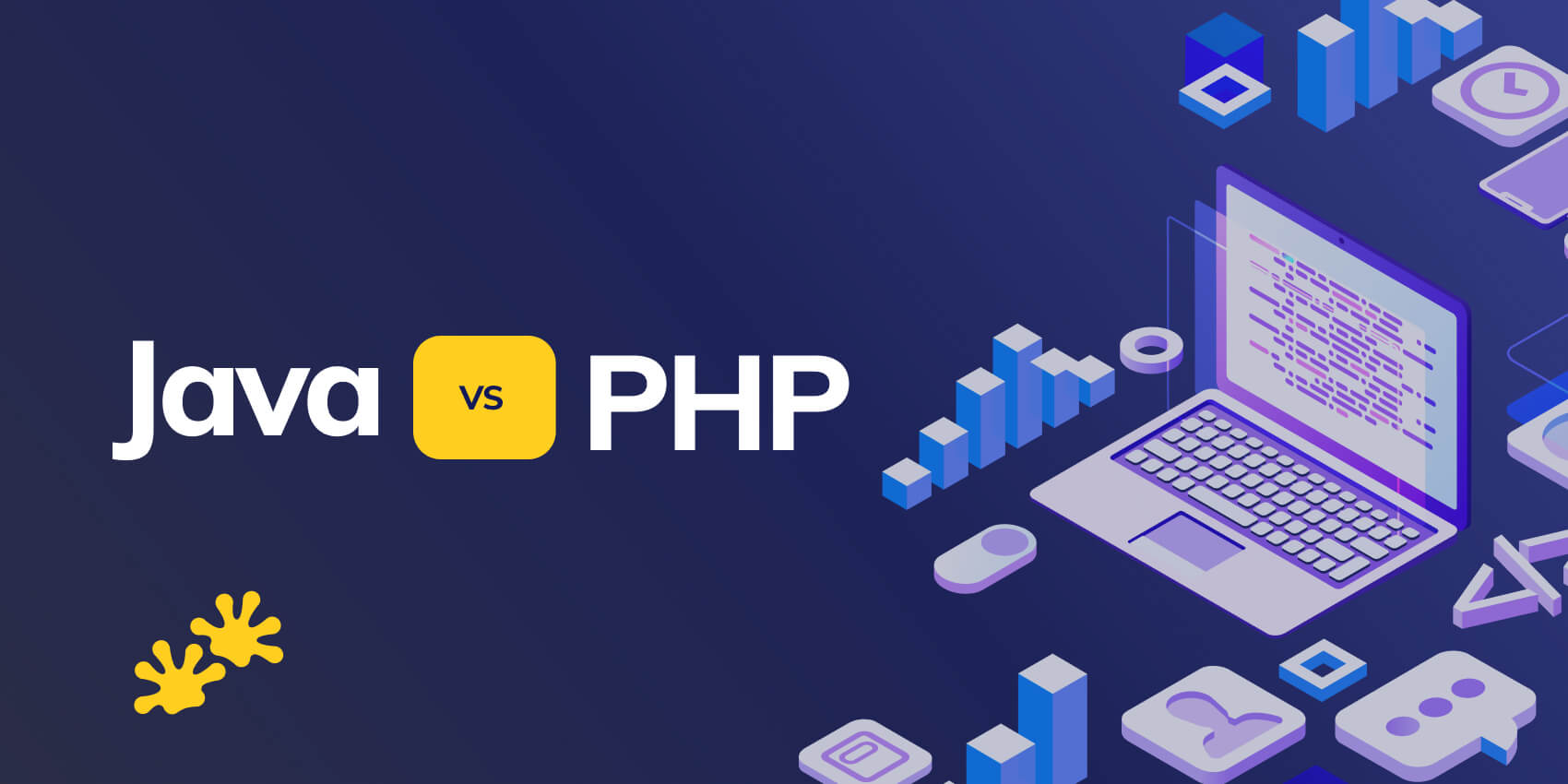Java vs PHP

A battle more epic than Helm’s Deep siege.
Since the beginning of time, people have always been fighting because of various reasons and using various weapons. For food, for territory, for lands, gods, women, politics – using rocks, bows, swords, guns, artillery and many other weapons.

Fortunately, nowadays most of the battles we take part in are only intellectual and with much less harmful means. We can battle over who makes the dishwashing, what to watch on tv, or… what programming language to choose. The last one has actually gone out of control in the 21st century to become a field of heavy battles between the developers of each technology, with any means necessary.
That is why, it’s a great topic to elaborate on, especially that just as in the majority of such intellectual conflicts, it is hard to get a straight answer on what is better. Actually, the best answer to this question is the answer I absolutely hate: IT DEPENDS.
To not leave you with such an inaccurate answer, I’ve let myself to make a short comparison that could help you to understand what programming language will be best for the backend of your project.
Programming vs. Scripting

Basically, the first thing to start with is the main difference – Java is a general-purpose programming language while PHP is a scripting language designed for the web (PHP initially stood for “Personal Home Page”). That’s great, but what does it actually mean? In short word, Java applications are compiled into so called “byte code” and run in a virtual machine on any platform that supports java, while code written in PHP is by default interpreted at runtime by web servers. Java’s code general purpose means that you can develop an application of any complexity, it might or might not be related to the web.
Again, great, but how does that affect the application? Generally, the programs that are compiled very often run faster than code that has to be interpreted by an interpreter first (interpreter is a PHP environment installed on the server in this case). What is more, many errors related to syntax are detected at the compilation stage, like e.g. invalid calls.
Still, obviously the technology is going forward and so are the solutions, so let’s take a deeper look at what are the advantages and disadvantages of Java and scripting languages.
Java
Advantages:
- Being one of the world’s most popular development programming languages, Java has developed a large number of libraries. Thanks to that, we can use a lot of existing libraries instead of spending time on writing a custom code for typical operations.learn java
- Java is time-proven – have always been there and will probably always be there, while scripting languages have fashion-based ups and downs dependable of their popularity.
- J2EE, one of the most popular Java platforms, is designed for enterprise projects, while scripting languages are designed rather for smaller applications.
- Multithreading – out of all, Java programming language has one of the best developed solutions for multithreading, which makes it easily handling multiple threads.
- In Java, a lot of errors are detected at compilation time.
- Change requests cost less in comparison to scripting languages, due to strong typing instead of dynamic. This means that when you need to change something, the compiler will detect if it is not compatible with Java code dependant on it and therefore throw an error.
- Easier debugging due to the same reason as mentioned above as well as thanks to the architecture of JVM, which means cheapest support.
- Java is a general-purpose programming language, while PHP was originally designed as a web language. This “web” origin sometimes lead to tricky architecture or require a mix of multiple languages in order to implement something, which is not directly related to web.
Disadvantages:
- In general, Java programming requires higher qualified developers. Sometimes you need a few more code lines than in PHP to implement something simple.
- Because of the above, if your project is not a rocket-science but rather a simple application consisting of popular features, the cost of its development will be a bit higher when using Java language.
- Requirements for hardware are usually a little bit higher.
PHP
Advantages:
- Developer can usually write the PHP script, which affects project cost on the first stage – development of MVP is a bit cheaper, which could be a good solution if you are thinking about testing your idea.
- Lower requirements to the server, especially in terms of memory.
- Learning PHP by the developers and therefore requires less experience with coding from developers to work effectively with it.
- Large number of libraries and popular PHP frameworks for various purposes.
- Cheaper hosting.
Disadvantages:
- Higher cost of changes due to dynamic typing. That is because there is a bigger chance to break existing functionalities, as dependencies and typing are not checked by the compiler.
- Costs of maintenance grow exponentially with project size.
- Less opportunities of adding more complicated functions (e.g. complicated mathematical algorithms) in software development.
- More problematic in terms of backward compatibility.
Conclusion
As you can see, it is not straightforward at all whether Java is better than PHP, or the other way around. Both languages have their pros & cons as well as a number of libraries that can reduce the cost of work and therefore a question of which language should you use is rather dependable on the type of system that you want to build.
PHP code was designed to simplify the life of web developers, and it successfully meets its purpose. You can develop and deploy web application within few minutes. But as usual, this simplification has its downsides, in particular, when you need to develop something not so obvious or something tricky – it becomes much more complicated than in java.
Usually, using a scripting language becomes a success-blocker when the project evolves and grows. Big projects that were created with scripting languages require much more effort to manage and maintain. Sometimes at a certain stage there is a need to add something tricky to the project, for which scripting language is not enough. So project owners have a choice either to have a mix of languages or to re-write the project from scratch using another language, which is an extremely painful business decision. Still, if you are building a small or medium-sized application, PHP programming language may surely be the right choice.
So, what language will you choose for your project? If you are still not sure, you can type us a message. Our consultant will be happy to hear about your idea and advise the best stack.

